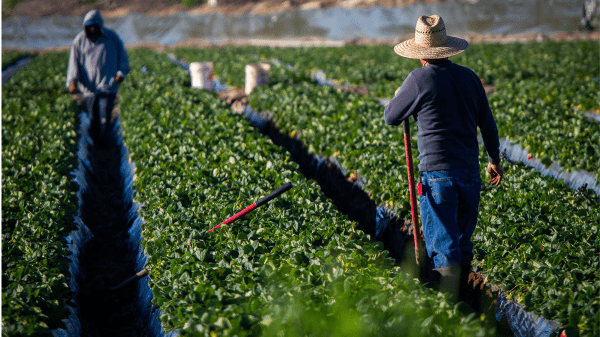Washington, D.C. – Today, the International Fresh Produce Association BB #:378962 released two new reports underscoring the impact of the agricultural labor crisis on the fresh produce industry and the United States’ food security. The reports, conducted by Texas A&M University, Center for North American Studies, and leading agricultural experts, found that unless Congress acts quickly, American consumers will rely on foreign countries to meet U.S. food needs, jeopardizing food security and national security.
“Out-of-control labor costs threaten to upend our food supply chain and push America’s fresh produce industry into crisis,” said IFPA CEO Cathy Burns. “These reports underscore the urgent need for congressional action to provide relief to growers and reform current regulations that expose employers to liabilities outside of their direct control and allow workers to receive wages for work they have not done.”
A decreased domestic labor pool, increased reliance on the H-2A Visa program, and the program’s flawed wage calculation have dramatically impacted the cost and availability of labor, pricing U.S. growers out of the market. Key findings from the reports include:
- The average farmer is unable to access 21 percent of their necessary workforce.
- Reliance on the H-2A Visa program has surged by 300 percent since 2012, representing 10-15 percent of all agricultural labor jobs.
- Jobs certified by the H-2A Visa program represent 10 to 15 percent of all agricultural jobs today.
- Since 2020, a larger share of the total supply of fresh fruit in the U.S. was imported than grown domestically:
- In 2000, 37 percent of fruits were imported, up to 55 percent in 2022.
- In 2022, fruit imports were 29 percent of the total supply, up from 9.5 percent in 2000.
Farm wages have grown more than 20 percent due to increases in the Adverse Effect Wage Rate (AEWR), the minimum hourly wage the Department of Labor requires employers to pay H-2A workers, which often does not match local market conditions. The financial strain on growers and reduced competitiveness in the international market is poised to impact consumers with significantly increased prices for domestically grown produce.
The House of Representatives and Senate are considering several pieces of legislation that would address various issues with the H-2A program. Included in these considerations are provisions that would maintain the current AEWR for the H-2A program, prevent the implementation of the recent May 2024 DOL rule, and reconsider a February 2023 DOL rule. Many of these provisions received unanimous bipartisan support as part of the House Agriculture Committee’s Agricultural Labor Working Group.
From burdening consumers with high costs and hindering nutritional accessibility to increasing dependence on foreign nations to secure our food supply, the consequences of delayed action on the agricultural labor crisis are far-reaching.
Policymakers and the fresh produce and floral industries will gather next week for IFPA’s annual Washington Conference to address and discuss the most pressing public policy matters, including the agricultural labor and workforce crisis.
About the International Fresh Produce Association (IFPA)
The International Fresh Produce Association (IFPA)?is the largest and most diverse international association serving the entire fresh produce and floral supply chain and the only to seamlessly integrate world-facing advocacy and industry-facing support. We exist to bring the industry together to create a vibrant future for all. We grow our member’s prosperity by conducting advocacy; connecting people and ideas; and offering guidance that allows us all to?take action?with purpose and confidence.



